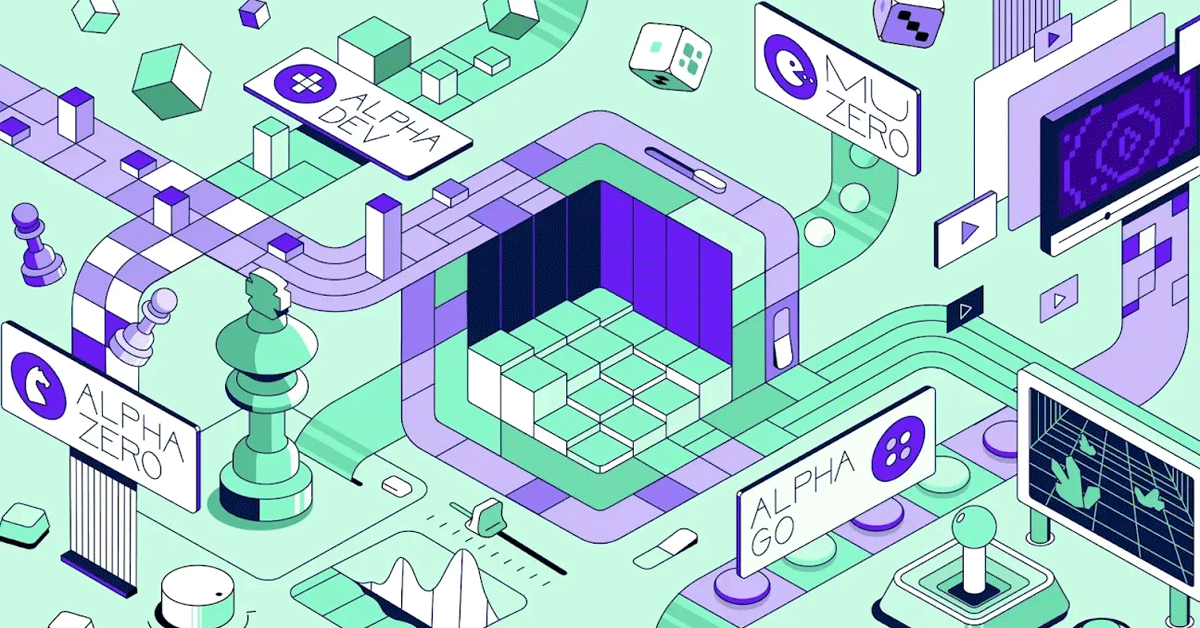Right now, the AI market is forecasted to be valued at around $3,636 billion by 2033. And Google DeepMind is a dominant competitor in the field. We have a lot to talk about the Deepmind and about their innovations, like PaLM, Gemini, AlphaMissense, and more. We certainly have a lot to talk about Google and Deepmind.
DeepMind Technologies Limited, famously known as Google DeepMind. This is a London-based research organization mainly focusing on artificial intelligence, which was established in 2010.
But in 2015, it became part of Google and is now a subsidiary of Alphabet Inc.(Google’s parent company). Let’s start from the beginning, and let me tell you all about how Deepmind has become one of the most important research organizations in the world.
Google DeepMind’s journey
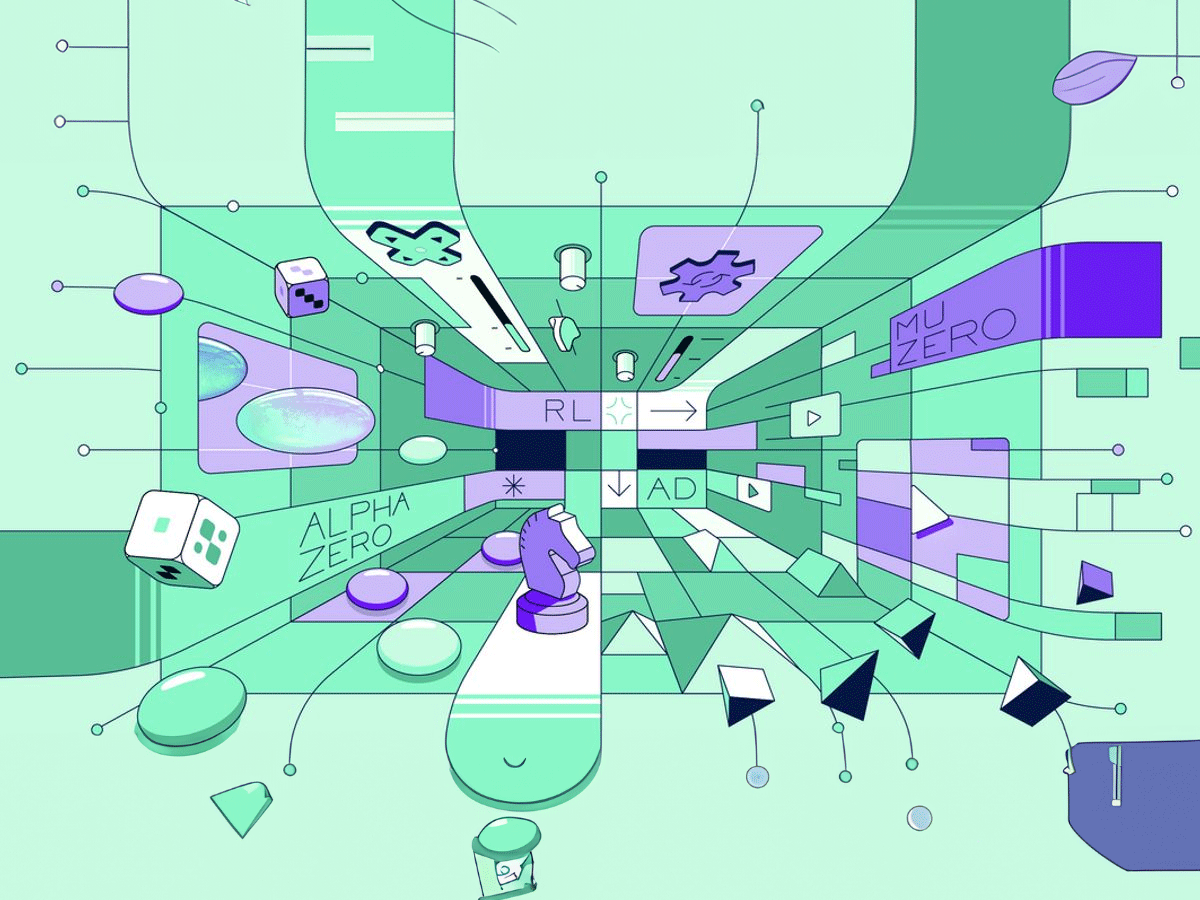
Google DeepMind’s journey is nothing short of remarkable. Bringing together the expertise of Google Brain and DeepMind, the collaboration, spearheaded by CEO Demis Hassabis, has led to groundbreaking advancements in AI over the past decade.
Starting in 2010, DeepMind took an interdisciplinary approach, merging ideas from machine learning, neuroscience, engineering, mathematics, simulation, and computing infrastructure. Their early success in pioneering deep reinforcement learning through the DQN program showcased the potential of AI by mastering 49 Atari games from scratch.
So, do you know about the ancient Chinese game called Go? This game is considered a super grand challenge for artificial intelligence. Too many outcomes. But Team Deepmind changed it forever.
In 2015, they revealed the game-changing AlphaGo, the first program to defeat a Go world champion, setting a milestone a decade ahead of its time. And now it’s pretty hard to compete and win against the AlphaGo AI.
There are more game-related things. AlphaZero and MuZero’s successors demonstrated adaptability in various games and real-world problem-solving scenarios. The year 2019 witnessed another hit with AlphaStar, the first AI system to outplay a top professional in StarCraft II. Personally, I loved that game, and It was big news around that time.
Their technological influence extended to everyday life, creating WaveNet, a realistic text-to-speech model used in Google Assistant, and influencing current Generative AI systems.
Fast forward to 2020, and DeepMind launched AlphaFold, a game-changer predicting accurate 3D protein structures, catalyzing advancements in biology. If you wanna read more about AlphaFold and AlphaMissense’s role in disease diagnosis and treatment, we’ve got you covered.
And personally, I highly recommend you to watch the documentary as well. You will come to another level of appreciation for the effort of the team behind this.
Other breakthroughs included AlphaCode for competitive-level computer programs and enhanced weather predictions.
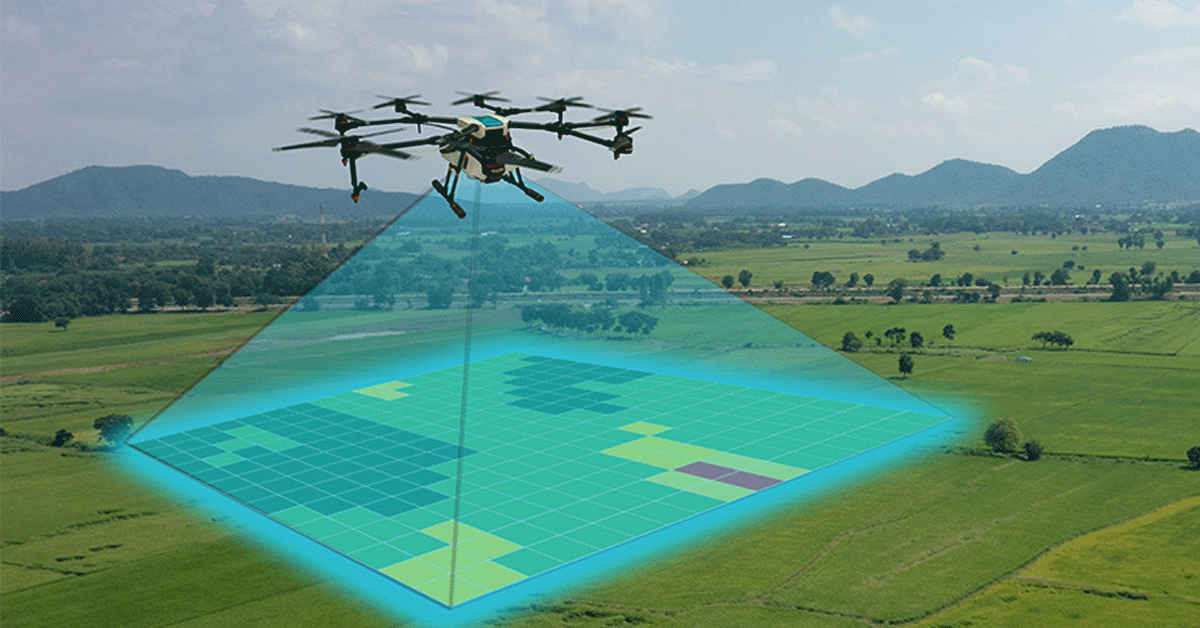

In general, Artificial intelligence powers systems already working on the weather using the power of machine learning. Weather prediction is super important, especially in the agricultural and farming industry.
In 2017, Google Brain’s amazing invention of the Transformer architecture became foundational for large language models, impacting BERT and improving Google Searches. Continuing their stride in AI, models like LaMDA and the PaLM family.
AI has the potential to be one of the most important and beneficial technologies ever invented. – Demis Hassiabis CO-Founder & CEO, of Google DeepMind
The team’s contributions extended to advancements in robotics with PaLM-SayCan and a more generalized visual-language-action model with RT-2.
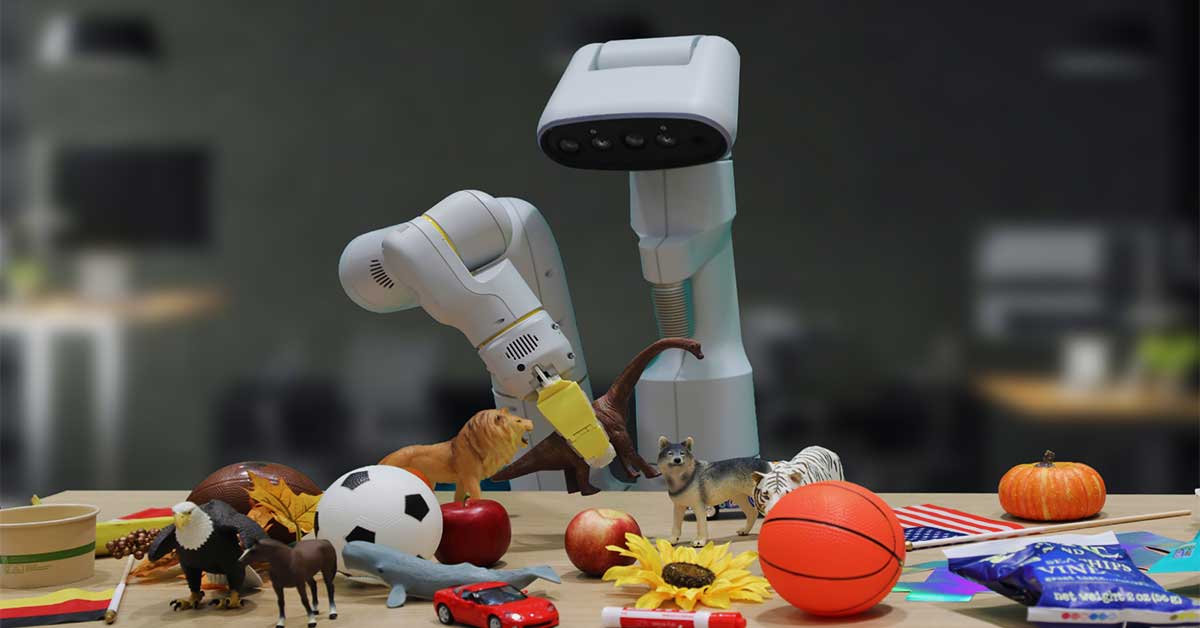

Introducing the Universal Speech Model and initiatives like Project Euphonia highlighted Google Brain’s commitment to better language understanding and improving communication for those with speech impairments.
Basically, my opinion is that Deepmind’s partnering up with Google is one of the best things that ever happened in the field of AI and in the general technological world. Remember, AI is already changing the way we live, whether we like it or not. Mind is part of it.
Google DeepMind – Applications and Achievements
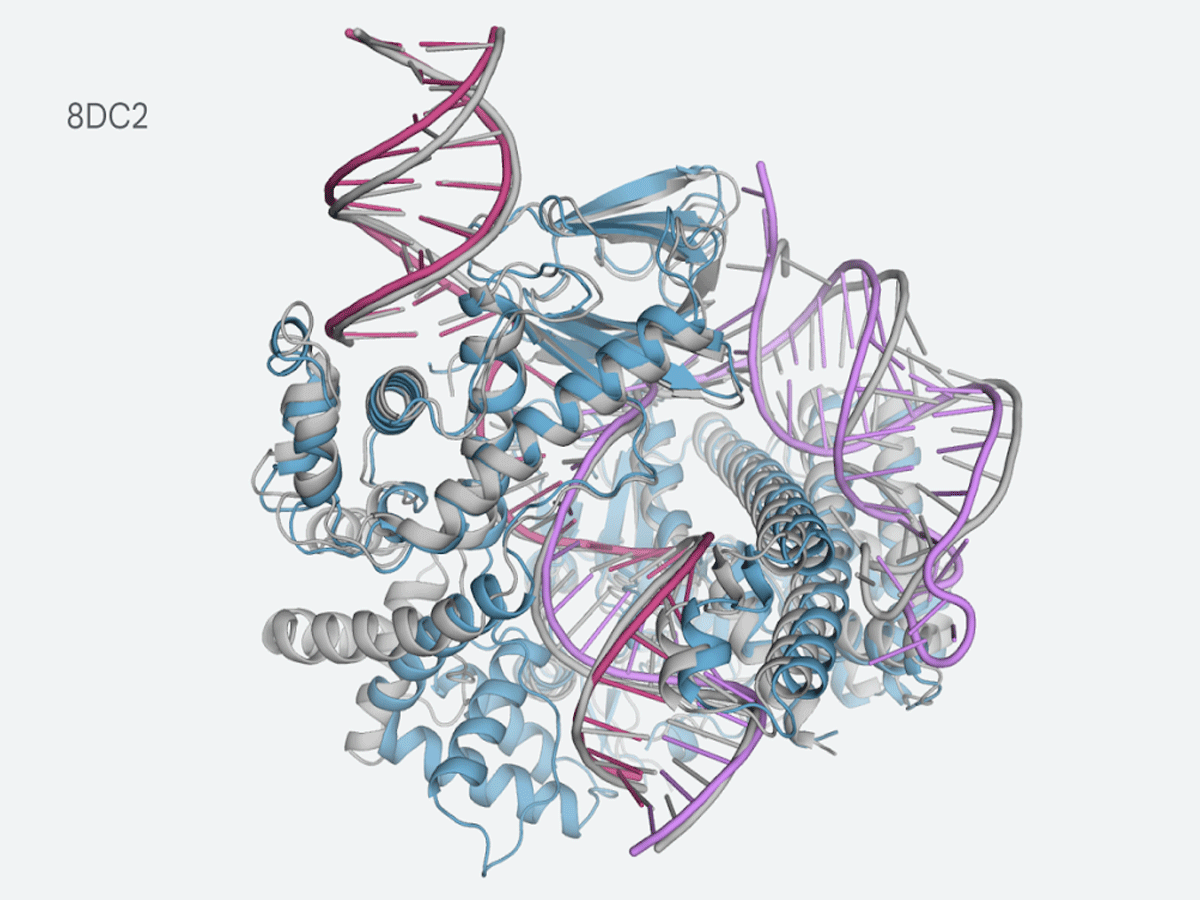

When we talk about DeepMingd, we must just mention how much of a service they do to society by being a helping hand to adopt AI to fields like healthcare, robotics, and much much more.
DeepMind’s prowess in reinforcement learning stands out the most, where AI systems are trained through interactions with the environment, receiving feedback in the form of penalties or rewards.
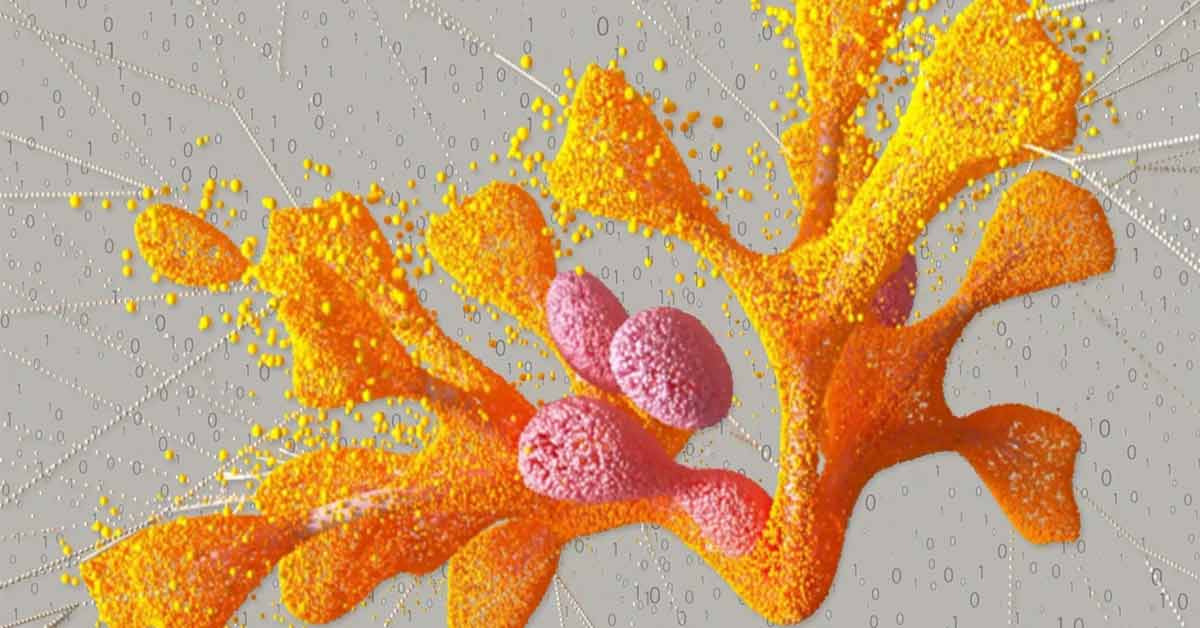

Another cornerstone of DeepMind’s approach is the use of neural networks, drawing inspiration from the structure of the human brain. These interconnected nodes process and transmit information, allowing the system to learn from data and make precise predictions or decisions.
The best example of this is AlphaFold, which demonstrates the ability to predict the 3D structure of proteins with amazing and remarkable accuracy based on genetic sequences.
In healthcare, DeepMind’s contributions are significant. Applying AI research, the organization has crafted systems for medical image analysis, patient predictions, and enhancing hospital operational efficiency. We discussed this in the AlphaMissense article and Mayo Clinic Testing Google’s Medical AI Chatbot Med-PaLM 2 article.
Another notable achievement is the collaboration with the UK’s National Health Service (NHS) to build a system adept at detecting early signs of kidney diseases.
When we talk about robotics, DeepMind is developing AI systems trained to control robots for specific tasks. You can read about these in the RT-2 article. Moreover, the open-sourcing of MuJoCo, acquired by DeepMind, provides an effective contact model, fostering research and development in robotics and various other fields.
Google DeepMind’s Recent Discoveries
Potential for Thousands of New Materials
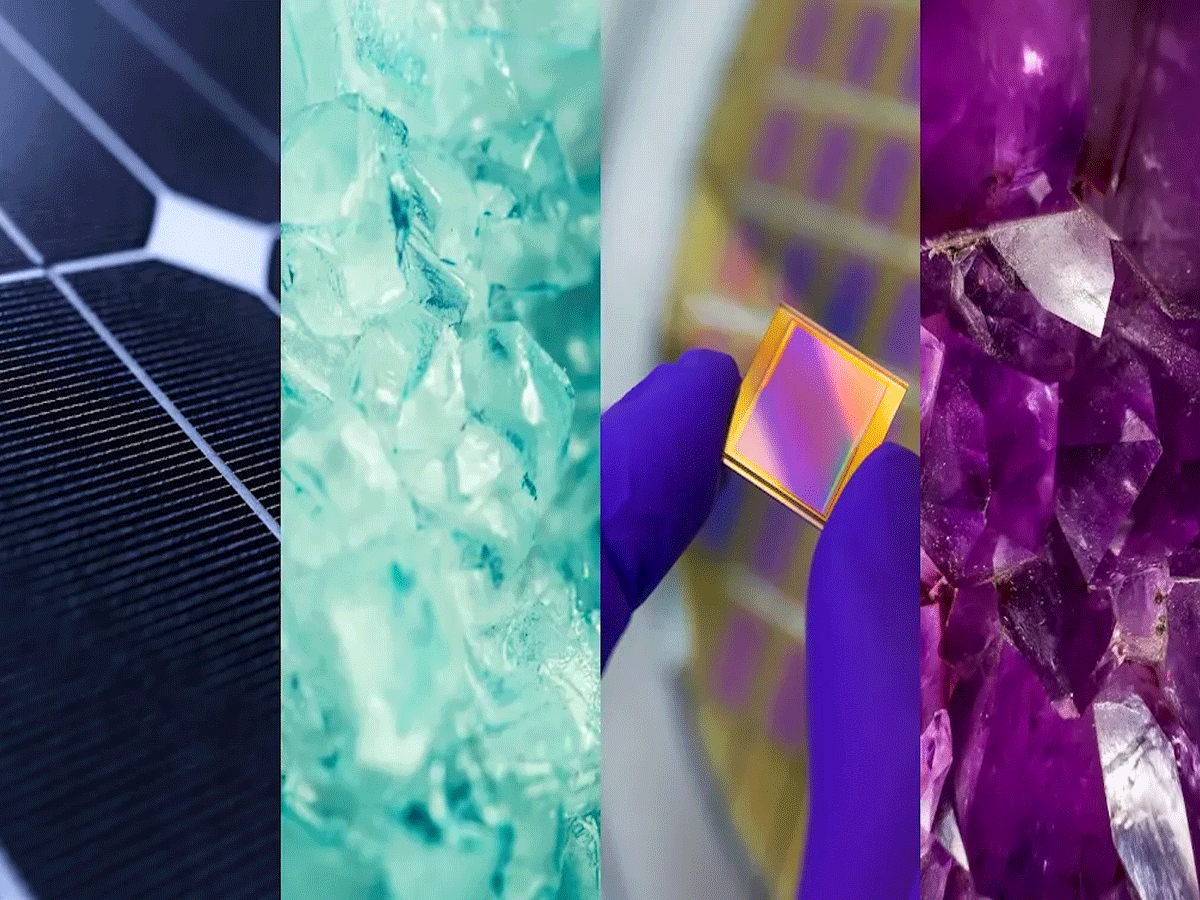

In 2023 Nov 29, Google DeepMind revealed a breakthrough in artificial intelligence (AI), using its powers to predict the structures of more than 2 million new materials.
In a research paper featured in the science journal Nature, this Alphabet-owned AI firm disclosed that almost 400,000 hypothetical material designs could soon transition from theory to reality in lab conditions. The potential applications of this advancement are promising, especially in the realm of enhancing batteries, solar panels, and computer chips.
The journey to discovering and synthesizing new materials has historically been a slow and costly process. To put things in perspective, it took roughly two decades of research before widely used lithium-ion batteries became commercially available, powering everything from phones to electric vehicles.
There’s optimism about accelerating the traditional 10 to 20-year timeline for material discovery. Ekin Dogus Cubuk, a research scientist at DeepMind, envisions this acceleration through advancements in experimentation, autonomous synthesis, and machine learning models.
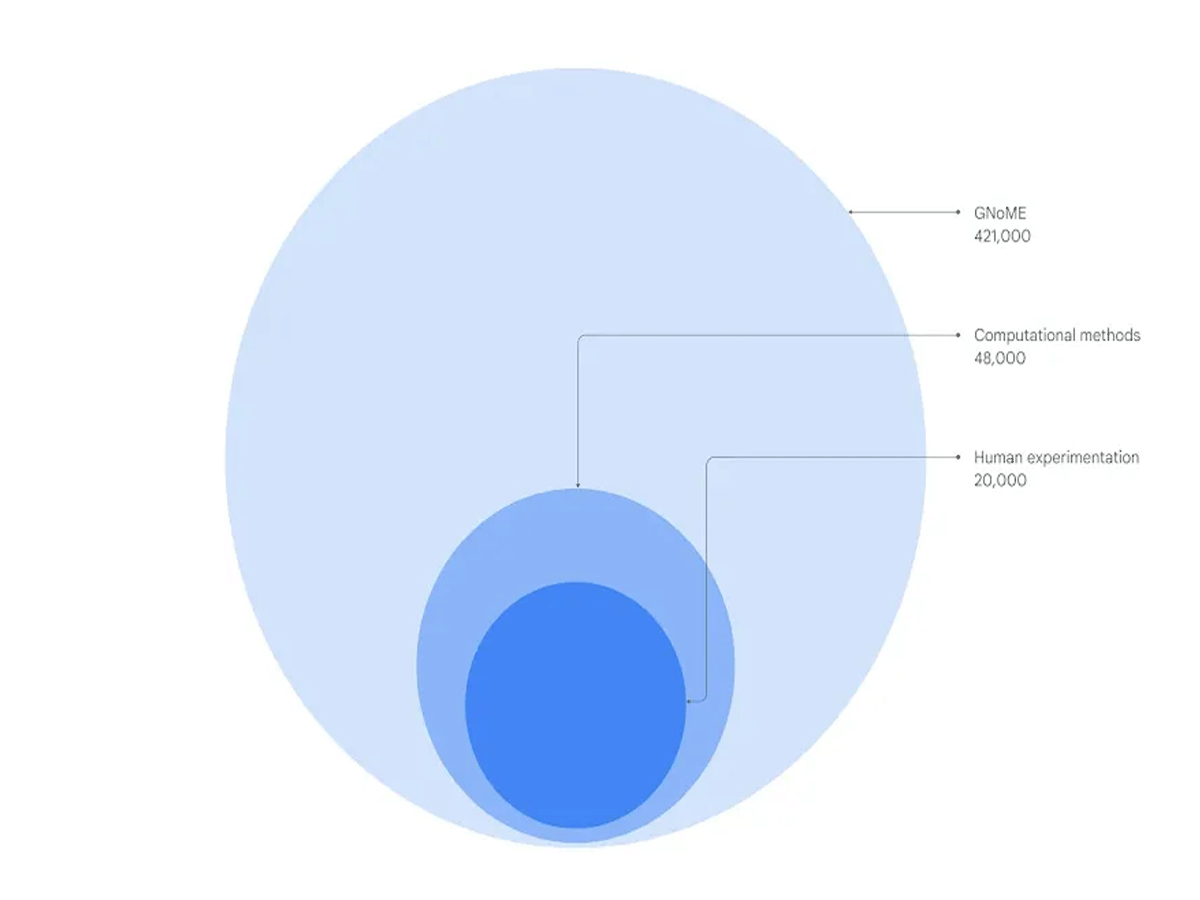

DeepMind’s AI, trained on data from the Materials Project established in 2011, which compiles information on around 50,000 known materials, is a key player in this transformative process.
Lyria model and DreamTrack
When we talk about the amazing discoveries by Google Deepmind, you can’t forget about the Lyria, an AI music generation model. This was an AI experiment, in collaboration with YouTube, to promote creativity in music. Developed by Google DeepMind, the Lyria model can generate top-notch AI music, handling instrumentals and vocals with finesse.
The model takes on transformation and continuation tasks, providing users with nuanced control over the style and performance of the generated music.
The first experiment, DreamTrack, is a partnership with YouTube Shorts that involves a select group of creators using Lyria. If you wanna read more about this, I recommend you to read the article about DreamTrack and how it works.
Google DeepMind uses an unparalleled computing infrastructure to create the next wave of research breakthroughs and transformative products. And they promise to use these new technologies responsibly & safely, protecting their own AI principles.

